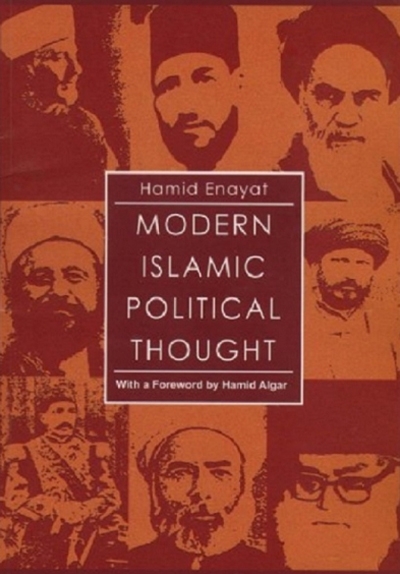



Islamic Iran has survived for 40 years because it adhered to Islamic principles but sectarianism and nationalism are gradually creeping in. These must be guarded against just as the Ikhwan must re-evaluate their conduct over the last 40 years to rectify their mistakes.
The success of the Islamic revolution in Iran exposed the secular nationalists both in Iran and the rest of the Muslim world.
Through massive propaganda, Muslims are led to believe that there deep differences between Shias and Sunnis. To advance this agenda, crises are deliberately engineered that lead to bloodshed.
3If Muslims want to learn how hadith literature has been distorted, these two books will help them in this quest.
2It came as a shock to the Saudis that they were not only not invited to the Islamic conference in Grozny but that the final communiqué even excluded them from being Sunnis.
1Using the garb of Sufism, the self-styled religious preacher, Fethullah Gulen has turned out to be a US-Zionist puppet who is prepared to advance their agenda. This is how the enemies of Islam operate.
2The Prophet’s (pbuh) Sunnah and Sirah are the two fundamental reference points after the noble Qur’an on which all Muslims agree. He is the best of exemplars (33:21) and obedience to him alongside that of Allah (swt) is obligatory upon every Muslim. It is for this reason that Muslims organize elaborate programs to celebrate the birthday of the noble Messenger (pbuh) that falls in the month of Rabi‘ al-Awwal.
Muslim unity cannot be achieved through slogans. It requires practical steps, the first being each side showing respect to the other and being sensitive about what concerns them most.
All over the world, the confrontation between the forces of Islam and kufr is intensifying, with the forces of the Islamic movement taking on the kuffar – represented in the modern world by the zionist-US dominated West – in many very different ways. And all over the world, we are seeing the kuffar hitting back in one very dangerous way: the promotion of sectarianism and internal discord among Muslims.
The unity of the Muslim ummah is a reality proclaimed in the Qur’an, in the ayaat above and numerous others like them; it is one of the key strengths of the Ummah at many levels, from the cultural to the political. It is the unity of the ummah, the common understanding that all Muslims are brothers and sisters in faith, that makes Muslims feel at home wherever they may go in the Muslim world.
An acrimonious parliamentary and public debate, accompanied by a series of boycotts by several groups of parliamentary sessions, has repeatedly forced Iraq's legislature to postpone discussion of a bill to divide Iraq into autonomous regions.
The present article was published by Shahid Shaqaqi in Egypt. It was translated into English and first published by the Islamic Propagation Organization of the Islamic Republic of Iran, in Canada, with the title, Sunni vs. Shi'ah: A Pitiful Outcry, and under the pen name of the author, Ezzoddin Ibrahim.
1In the aftermath of the triumph of the Islamic Revolution in Iran, publications on Islam and politics began to flood the academic and pseudo-academic book market in the West. In the midst of such staggering amount of writings, whether of a serious or pamphleteering type, this book offers a lucid and well-argued interpretations of modern Islamic political thought that is indispensable for the understanding of much of the current political developments in the Muslim world. Hamid Enayat's Modern Islamic Political Thought, first published in 1982, at once distinguished itself from its mass of turgid competitors . It was the fruit not of a sudden adjustment of focus but of a longstanding interest, of prolonged reflection, rich and varied experience, and real erudition.
1What follows is the Fatwa (religious verdict/ruling) of one of the Sunni world’s most revered scholars, Shaikh Mahmood Shaltoot with regard to the Shi’a. Shaikh Shaltoot was the head of the renowned al-Azhar Theological school in Egypt, one of the main centers of Sunni scholarship in the world. It should be of interest to know that a few decades ago, a group of Sunni and Shi’a scholars formed a center at al-Azhar by the name of "Dar al-Taqreeb al-Madhahib al-Islamiyyah”which translates into "Center for bringing together the various Islamic schools of thought".
1
